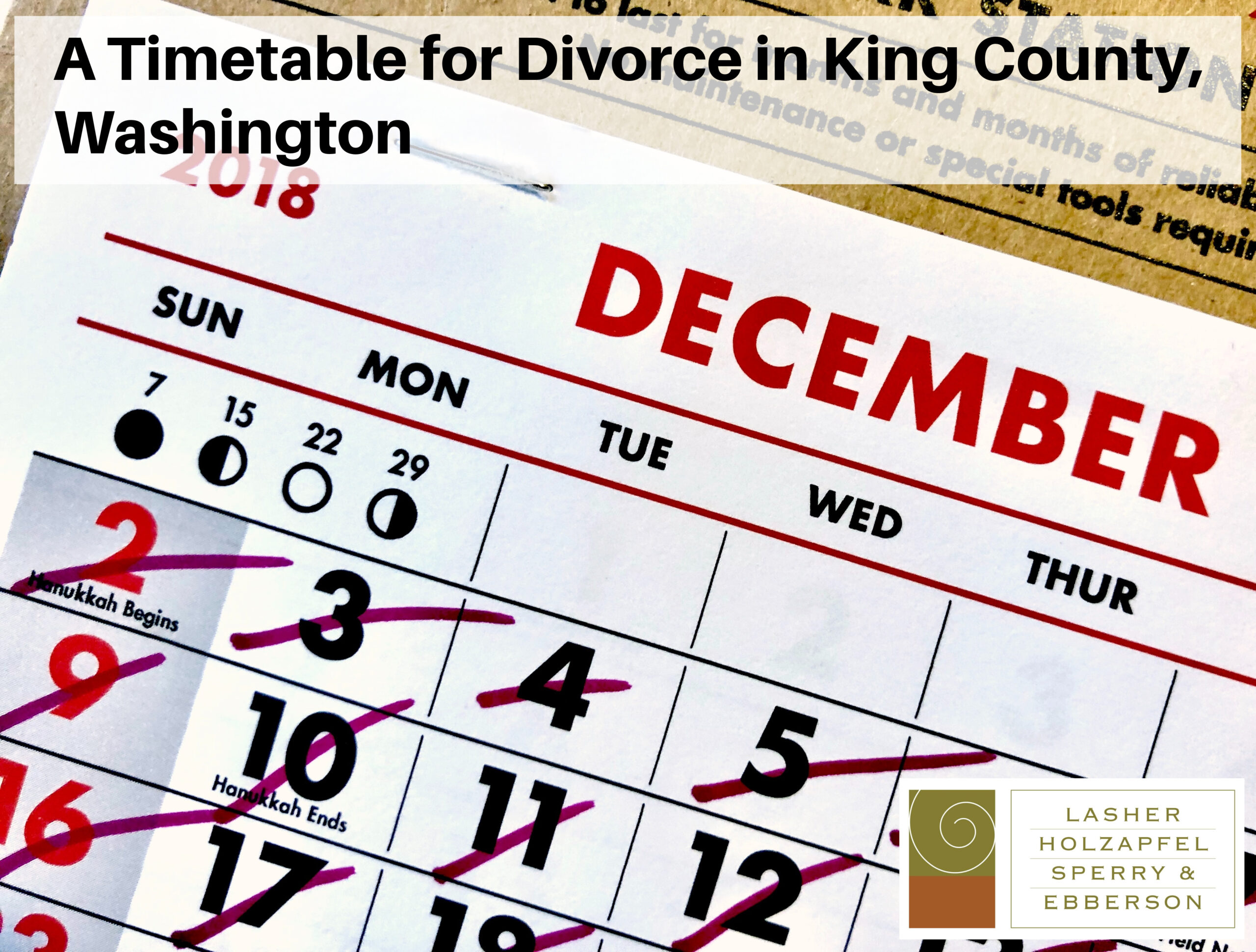A Timetable for Divorce in King County, Washington

Posted on March 14, 2023 by Will Reingold
Legal proceedings tend to take longer than people expect or desire. For people facing divorce, most want the matter finalized as quickly as possible. An oft-asked question is how long it will take to be officially divorced. This depends on several factors and following are some of the key factors.
First, in King County, the Court will generate a case schedule the day the day the petition for divorce is filed. For every divorce in King County, the trial is currently set at 11 months to the day after filing the petition. The schedule also provides a number of dates and deadlines for completing other aspects of the case, and one needs to comply with these deadlines so that the Court knows the case is progressing in accordance with the schedule. For example, parties with minor children will have to participate in a court-ordered “Parenting Seminar” by a specified date. While King County sets an 11-month deadline for trial, other counties do not automatically assign a date for trial. In some counties, one will have to separately request a trial date once all pre-trial matters have been addressed.
Second, the divorce may be finalized if the parties are able to settle their case without going to trial. The vast majority of cases do not make it to trial. Parties may settle their case at any time prior to the trial court’s final ruling, and some parties are even able to effectively settle a matter before a petition is filed. Settling a case quickly and amicably is encouraged by courts and in King County, one of the deadlines set forth in the case schedule requires the parties to participate in what is known as “alternative dispute resolution,” where the parties are mandated to attempt settlement outside of court with the help of a professional, such as a mediator or arbitrator. If a full settlement is reached, the parties typically just need to sign the final pleadings (e.g., Final Divorce Order, Child Support Order, etc.) and to file them with the Court. Note that the Court must still approve of the settlement and final pleadings by signing the final pleadings.
Third, (to somewhat qualify the preceding points about settling the case quickly), there is a 90-day waiting period that has to elapse. However, the divorce can be settled prior to the expiration of the 90-day waiting period, but the parties cannot be officially divorced until the 90-day waiting period lapses. The 90-day waiting period runs from the date the summons and petition for divorce are filed and served upon the other party. The general idea behind the waiting period is to allow the parties time to reconcile (or at least cool down) given how emotional things can be in divorce.
Fourth, it is possible for portions of the case to settle, while others go to trial. For instance, if the parties are able to work out and stipulate to a Parenting Plan and Child Support Order for any minor children, these aspects do not need to be part of the trial. If the parties cannot reach any common ground on finances (e.g., property division, spousal maintenance, etc.), these are items that would need to go to trial or arbitration. If the remaining matters to be resolved are relatively minor, like deciding who retains the family pet, then submitting the remaining issues to arbitration may be more practical than going to trial. Each part of a case that settles can help reduce the amount of time needed for trial and, by extension, the accrual of attorney’s fees and other costs attendant to trial.
Each divorce is different. If you have questions about how your divorce may unfold or would like support with your divorce, contact one of the family law attorneys at Lasher Holzapfel Sperry & Ebberson PLLC for assistance.

